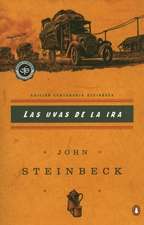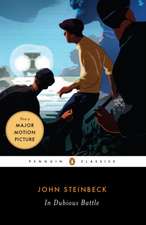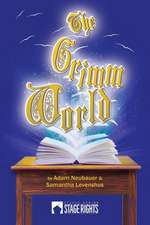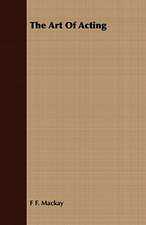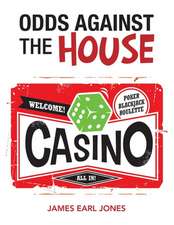Of Mice and Men and the Moon Is Down: Penguin Classics
Autor John Steinbeck James Earl Jonesen Limba Engleză Paperback – 31 mar 2010 – vârsta de la 18 ani
This Penguin Classics edition celebrates Steinbeck’s dramatic adaptations of his most powerful short novels, Of Mice and Men and The Moon Is Down, featuring a foreword by award-winning actor James Earl Jones.
Of Mice and Men represents an experiment in form, as Steinbeck put it, “a kind of playable novel, written in novel form but so scened and set that it can be played as it stands.” A rarity in American letters, it achieved remarkable success as a novel, a Broadway play, and three acclaimed films.
Of Mice and Men received the New York Drama Critics’ Circle Award for Best Play in 1937-1938. A number of acclaimed actors have interpreted the iconic roles of George and Lennie for stage and screen, including James Earl Jones, John Malkovich and Gary Sinise.
The Moon Is Down uncovers profound, often unsettling truths about war and human nature. It tells the story of a peaceable town taken by enemy troops, and had an extraordinary impact as Allied propaganda in Nazi-occupied Europe.
This Penguin Classics edition of the theatrical adaptations of Steinbeck’s two classic short novels are essential to actors, playwrights, filmmakers and directors studying the dramatic work of the Nobel Prize winning author of The Grapes of Wrath and East of Eden.
Of Mice and Men represents an experiment in form, as Steinbeck put it, “a kind of playable novel, written in novel form but so scened and set that it can be played as it stands.” A rarity in American letters, it achieved remarkable success as a novel, a Broadway play, and three acclaimed films.
Of Mice and Men received the New York Drama Critics’ Circle Award for Best Play in 1937-1938. A number of acclaimed actors have interpreted the iconic roles of George and Lennie for stage and screen, including James Earl Jones, John Malkovich and Gary Sinise.
The Moon Is Down uncovers profound, often unsettling truths about war and human nature. It tells the story of a peaceable town taken by enemy troops, and had an extraordinary impact as Allied propaganda in Nazi-occupied Europe.
This Penguin Classics edition of the theatrical adaptations of Steinbeck’s two classic short novels are essential to actors, playwrights, filmmakers and directors studying the dramatic work of the Nobel Prize winning author of The Grapes of Wrath and East of Eden.
Din seria Penguin Classics
-
 Preț: 81.00 lei
Preț: 81.00 lei -
 Preț: 103.12 lei
Preț: 103.12 lei -
 Preț: 94.66 lei
Preț: 94.66 lei -
 Preț: 100.22 lei
Preț: 100.22 lei -
 Preț: 129.73 lei
Preț: 129.73 lei -
 Preț: 103.53 lei
Preț: 103.53 lei -
 Preț: 80.44 lei
Preț: 80.44 lei -
 Preț: 76.28 lei
Preț: 76.28 lei -
 Preț: 98.97 lei
Preț: 98.97 lei -
 Preț: 67.61 lei
Preț: 67.61 lei -
 Preț: 119.60 lei
Preț: 119.60 lei -
 Preț: 95.29 lei
Preț: 95.29 lei -
 Preț: 64.54 lei
Preț: 64.54 lei -
 Preț: 74.21 lei
Preț: 74.21 lei -
 Preț: 119.20 lei
Preț: 119.20 lei -
 Preț: 101.17 lei
Preț: 101.17 lei -
 Preț: 133.62 lei
Preț: 133.62 lei -
 Preț: 77.15 lei
Preț: 77.15 lei -
 Preț: 110.75 lei
Preț: 110.75 lei -
 Preț: 87.86 lei
Preț: 87.86 lei -
 Preț: 81.03 lei
Preț: 81.03 lei -
 Preț: 78.77 lei
Preț: 78.77 lei -
 Preț: 135.25 lei
Preț: 135.25 lei -
 Preț: 92.40 lei
Preț: 92.40 lei -
 Preț: 95.29 lei
Preț: 95.29 lei -
 Preț: 88.86 lei
Preț: 88.86 lei -
 Preț: 102.21 lei
Preț: 102.21 lei -
 Preț: 110.15 lei
Preț: 110.15 lei -
 Preț: 119.53 lei
Preț: 119.53 lei -
 Preț: 93.84 lei
Preț: 93.84 lei -
 Preț: 64.54 lei
Preț: 64.54 lei -
 Preț: 89.29 lei
Preț: 89.29 lei -
 Preț: 107.67 lei
Preț: 107.67 lei -
 Preț: 75.87 lei
Preț: 75.87 lei -
 Preț: 96.30 lei
Preț: 96.30 lei -
 Preț: 90.11 lei
Preț: 90.11 lei -
 Preț: 113.78 lei
Preț: 113.78 lei -
 Preț: 100.83 lei
Preț: 100.83 lei -
 Preț: 75.15 lei
Preț: 75.15 lei -
 Preț: 132.76 lei
Preț: 132.76 lei -
 Preț: 87.86 lei
Preț: 87.86 lei -
 Preț: 93.43 lei
Preț: 93.43 lei -
 Preț: 135.89 lei
Preț: 135.89 lei -
 Preț: 95.29 lei
Preț: 95.29 lei -
 Preț: 100.01 lei
Preț: 100.01 lei -
 Preț: 105.58 lei
Preț: 105.58 lei -
 Preț: 112.74 lei
Preț: 112.74 lei -
 Preț: 96.30 lei
Preț: 96.30 lei -
 Preț: 90.73 lei
Preț: 90.73 lei -
 Preț: 88.04 lei
Preț: 88.04 lei
Preț: 94.69 lei
Nou
Puncte Express: 142
Preț estimativ în valută:
18.12€ • 18.81$ • 15.11£
18.12€ • 18.81$ • 15.11£
Carte tipărită la comandă
Livrare economică 22 martie-05 aprilie
Preluare comenzi: 021 569.72.76
Specificații
ISBN-13: 9780143106135
ISBN-10: 0143106139
Pagini: 217
Dimensiuni: 134 x 200 x 16 mm
Greutate: 0.19 kg
Editura: Penguin Books
Seria Penguin Classics
ISBN-10: 0143106139
Pagini: 217
Dimensiuni: 134 x 200 x 16 mm
Greutate: 0.19 kg
Editura: Penguin Books
Seria Penguin Classics
Notă biografică
John Steinbeck, born in Salinas, California, in 1902, grew up in a fertile agricultural valley, about twenty-five miles from the Pacific Coast. Both the valley and the coast would serve as settings for some of his best fiction. In 1919 he went to Stanford University, where he intermittently enrolled in literature and writing courses until he left in 1925 without taking a degree. During the next five years he supported himself as a laborer and journalist in New York City, all the time working on his first novel, Cup of Gold (1929).After marriage and a move to Pacific Grove, he published two California books, The Pastures of Heaven (1932) and To a God Unknown (1933), and worked on short stories later collected in The Long Valley (1938). Popular success and financial security came only with Tortilla Flat (1935), stories about Monterey’s paisanos. A ceaseless experimenter throughout his career, Steinbeck changed courses regularly. Three powerful novels of the late 1930s focused on the California laboring class: In Dubious Battle (1936), Of Mice and Men (1937), and the book considered by many his finest, The Grapes of Wrath (1939). The Grapes of Wrath won both the National Book Award and the Pulitzer Prize in 1939.
Early in the 1940s, Steinbeck became a filmmaker with The Forgotten Village (1941) and a serious student of marine biology with Sea of Cortez (1941). He devoted his services to the war, writing Bombs Away (1942) and the controversial play-novelette The Moon is Down (1942). Cannery Row (1945), The Wayward Bus (1948), another experimental drama, Burning Bright (1950), and The Log from the Sea of Cortez (1951) preceded publication of the monumental East of Eden (1952), an ambitious saga of the Salinas Valley and his own family’s history.
The last decades of his life were spent in New York City and Sag Harbor with his third wife, with whom he traveled widely. Later books include Sweet Thursday (1954), The Short Reign of Pippin IV: A Fabrication (1957), Once There Was a War (1958), The Winter of Our Discontent (1961), Travels with Charley in Search of America (1962), America and Americans (1966), and the posthumously published Journal of a Novel: The East of Eden Letters (1969), Viva Zapata! (1975), The Acts of King Arthur and His Noble Knights (1976), and Working Days: The Journals of The Grapes of Wrath (1989).
Steinbeck received the Nobel Prize in Literature in 1962, and, in 1964, he was presented with the United States Medal of Freedom by President Lyndon B. Johnson. Steinbeck died in New York in 1968. Today, more than thirty years after his death, he remains one of America's greatest writers and cultural figures.
Early in the 1940s, Steinbeck became a filmmaker with The Forgotten Village (1941) and a serious student of marine biology with Sea of Cortez (1941). He devoted his services to the war, writing Bombs Away (1942) and the controversial play-novelette The Moon is Down (1942). Cannery Row (1945), The Wayward Bus (1948), another experimental drama, Burning Bright (1950), and The Log from the Sea of Cortez (1951) preceded publication of the monumental East of Eden (1952), an ambitious saga of the Salinas Valley and his own family’s history.
The last decades of his life were spent in New York City and Sag Harbor with his third wife, with whom he traveled widely. Later books include Sweet Thursday (1954), The Short Reign of Pippin IV: A Fabrication (1957), Once There Was a War (1958), The Winter of Our Discontent (1961), Travels with Charley in Search of America (1962), America and Americans (1966), and the posthumously published Journal of a Novel: The East of Eden Letters (1969), Viva Zapata! (1975), The Acts of King Arthur and His Noble Knights (1976), and Working Days: The Journals of The Grapes of Wrath (1989).
Steinbeck received the Nobel Prize in Literature in 1962, and, in 1964, he was presented with the United States Medal of Freedom by President Lyndon B. Johnson. Steinbeck died in New York in 1968. Today, more than thirty years after his death, he remains one of America's greatest writers and cultural figures.

